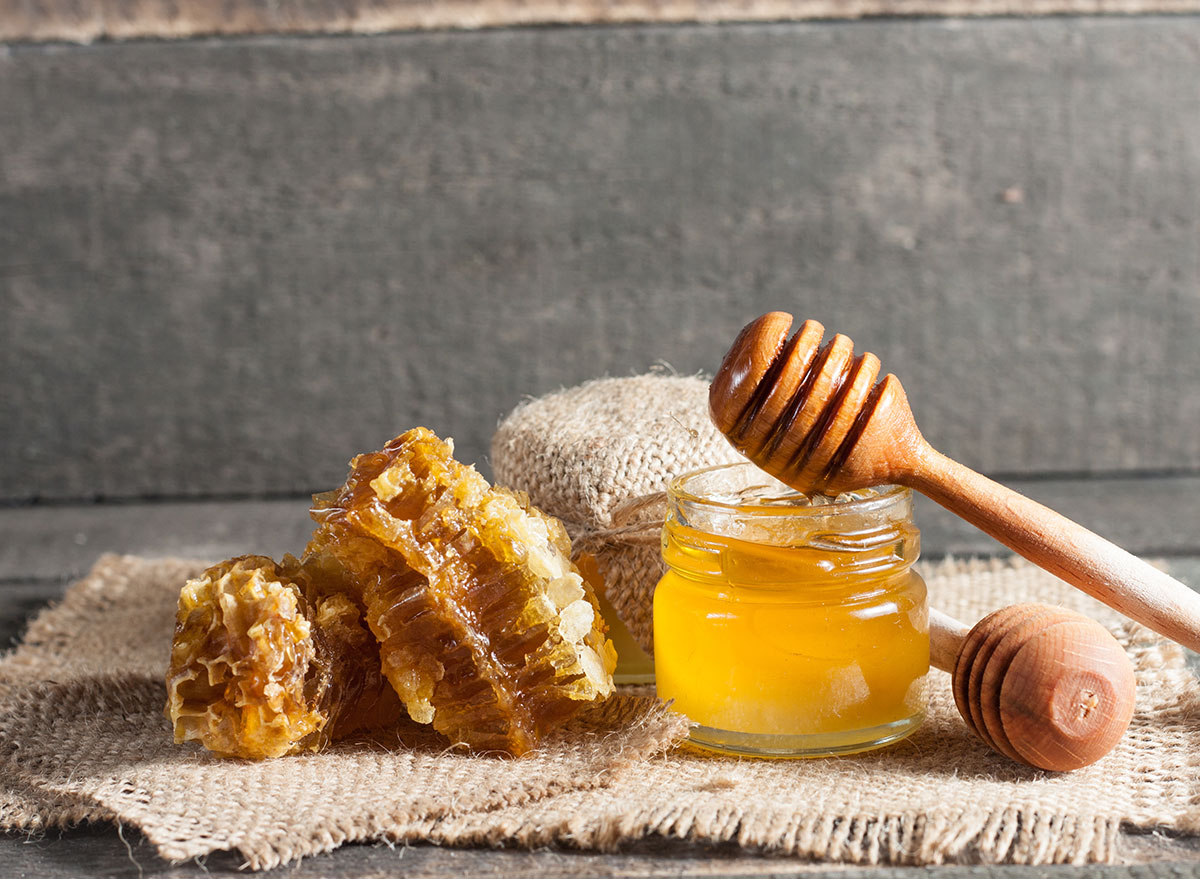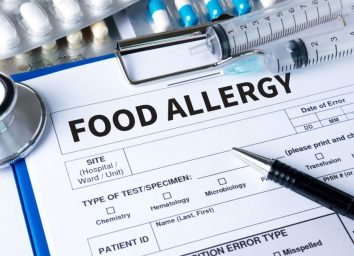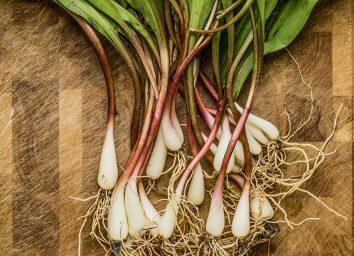Should You Start Eating Local Honey For Your Allergies?

If you struggle with seasonal allergies, you know how terrible they can be—from the itchy, watery eyes, headaches, sneezes, and sore throats, allergies can wreak havoc on you for months. And they probably have you running to the drug store for relief. But many people looking for more natural allergy relief may be intrigued about local honey. One of the most popular at-home remedies during allergy season is to buy and consume local honey to help relieve symptoms.
But despite the remedy’s popularity, is it true that local honey can alleviate seasonal allergy symptoms?
Local honey does have unique health benefits.
“Research suggests that the chemicals in honey may actually play a role in suppressing the genes that make us more susceptible to histamine, the chemical in our body that causes itching, sneezing, and runny nose,” says William Reisacher, MD, allergist, and director of Allergy Services at NewYork-Presbyterian and Weill Cornell Medicine.
Honey has also been studied as a cough suppressant and an anti-inflammatory, so it’s not a surprise that it’s been considered for allergy relief.
How the theory about eating local honey got started.
“The theory got started because local, unprocessed honey (aka raw honey) was known to contain local pollens,” says Lakiea Wright, MD, an allergist at Women’s Hospital in Boston and medical director at Thermo Fisher Scientific. “Raw honey is more likely to contain local pollen because it isn’t processed. During processing [that occurs in pasteurized, store-bought versions of honey], pollen is removed from honey.”
When it comes to eating local honey for allergies, the idea is that you ingest local pollen and eventually become less affected by it. This allergy treatment method is called allergen desensitization.
“The concept of allergen desensitization is based on exposing your body to small, escalating doses of allergen to desensitize your allergy cells,” says Dr. Wright. In the case of local honey, you would theoretically be ingesting pollen-containing honey in small amounts regularly to minimize seasonal allergy symptoms.
“With regular exposure to an allergen, your allergy cells become desensitized and are less likely to fire off and cause symptoms. Allergen immunotherapy (also known as allergy shots) is [also] based on this concept of desensitization,” explains Dr. Wright.
So, does eating local honey work as a treatment for your allergies?
“Unfortunately, [eating local honey] does not help with allergies because the pollens that bees collect are usually from flowers, which are not as potent and don’t provoke your immune system like other pollens (i.e. trees, grasses, and weeds) which cause ‘classic’ seasonal allergy symptoms,” says Dr. Wright.
Not only are flower pollens less potent than other pollens, but the amount of pollen present in local honey also isn’t enough to play a role in allergen desensitization. “Eating honey is ineffective because it only contains small amounts of pollen,” adds Dr. Wright.
What’s worse is that eating local honey isn’t just ineffective as an allergy remedy, but it could actually worsen your symptoms.
“In some cases, eating local raw honey may contribute to allergic symptoms because if you are highly sensitized, ingesting pollens in small amounts can cause local symptoms like an itchy mouth,” says Dr. Wright. “In rare cases, you can potentially have a more severe reaction like anaphylaxis because raw honey may contain bee parts, and if you have a bee allergy, you could have a reaction.”
Local honey isn’t the only food that can worsen seasonal allergy symptoms. Due to a condition called oral allergy syndrome (OAS), also known as pollen fruit syndrome (PFS), certain foods can cause an allergic reaction or worsen existing symptoms in those with pollen allergies. We put together a list of oral allergy syndrome foods to help you identify what foods besides honey might be worsening your allergy symptoms.
How to effectively manage allergy symptoms:
Of course, if you’re looking for treatment methods that do work for your allergies, there are many proven methods.
“The best strategies for battling allergies are taking steps to limit your exposure to the things you’re allergic to and taking the appropriate medications to keep symptoms under control,” says Dr. Reisacher.
If you’re unsure about the best allergy medications for you, your doctor can provide allergy testing to find the appropriate ones.
“I highly recommend talking to your healthcare provider about getting tested to find out what you are allergic to,” says Dr. Wright. “There is an allergy blood test available, which can evaluate you for common environmental allergens, including pollens (trees, grasses, weeds), dust mites, animal dander, and molds.”
Here are some ideas for minimizing your exposure to pollen, according to Dr. Wright:
- Keep your windows (home and car) closed
- Remove clothing after coming in from outdoors
- Wear sunglasses outdoors
- Try to minimize outdoor activities at dawn and dusk, when pollen counts are the highest
- Talk to your healthcare provider about taking an over the counter medication, including antihistamines (e.g. cetirizine, fexofenadine, or loratadine) and/or a nasal steroid
If your symptoms are not well controlled despite the above strategies, discuss with your healthcare provider if you are a candidate for allergen immunotherapy (also known as allergy shots).








